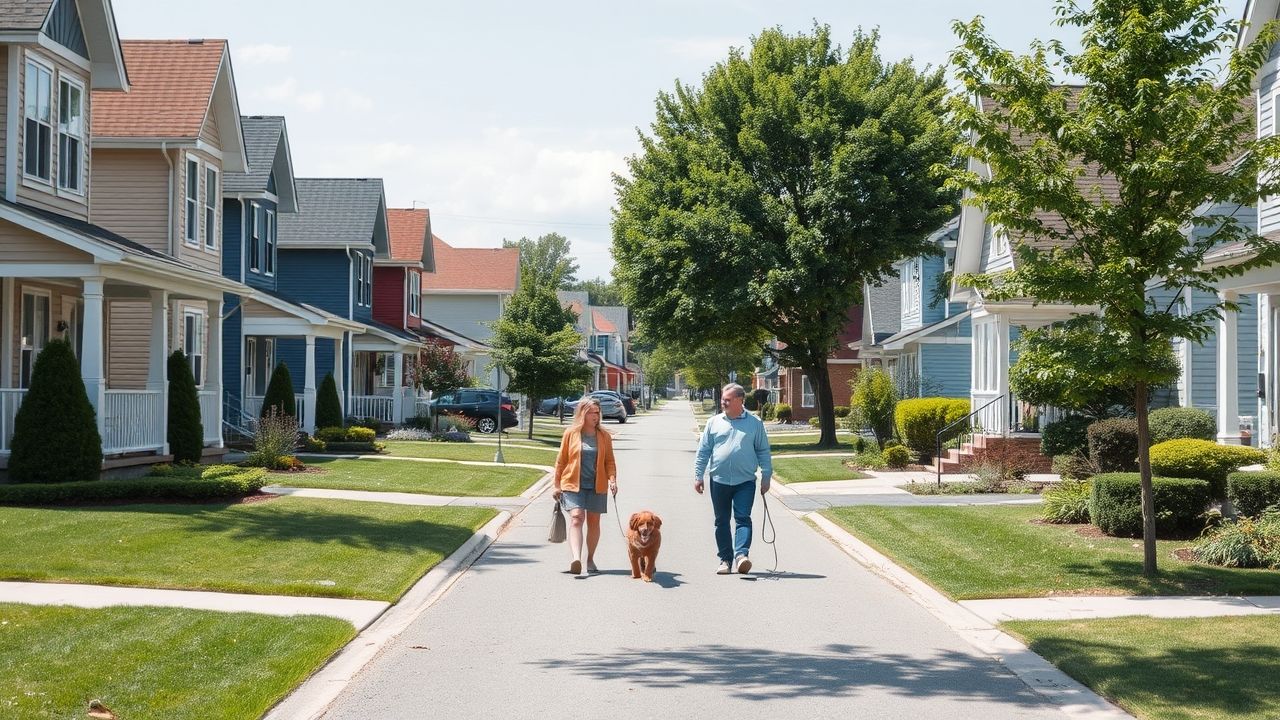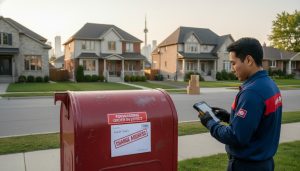Tired of confusing advice about buying or selling a home in the wild GTA West market? Feel lost about how you’ll actually build a life and connect with people after you move to places like Milton, Guelph, Oakville, Burlington, Georgetown, or Acton?
This is your no-nonsense, how-to guide. Forget the hype and confusing jargon. We break down exactly what you need to do to buy, sell, and really settle into your new community. We cover the market facts, the process steps, and how to build connections so your new house feels like home faster.
Understanding the GTA West Market (2024-2025 Reality Check)
The real estate market here is always changing. Knowing what’s happening right now helps you make smarter choices. Higher interest rates since 2022/2023 have cooled things down from the crazy peaks, but it’s still competitive.
General GTA Trends:
- Interest Rates: They went up, making mortgages more expensive. This slowed down price growth. Rates seemed to stabilize a bit in early 2024, but affordability is still a big challenge for many buyers.
- Inventory: More homes are listed for sale compared to the super-low levels of 2021-2022. This gives buyers a bit more choice and slightly more room to negotiate, but well-priced homes still sell fast.
- Prices: Prices aren’t climbing like crazy anymore. Some areas saw small dips, others stayed flat or saw modest gains in 2024. It really depends on the specific town and type of home. Experts predict a more balanced market for 2025, maybe favouring buyers slightly more than sellers compared to recent years.
- Regional Differences: The GTA isn’t one single market. What happens in downtown Toronto is different from Burlington or Acton.
Spotlight: Milton & Halton Hills (Georgetown, Acton)
- What’s Happening: These areas are popular with families looking for more space than they can afford closer to Toronto. Demand stayed strong through 2024, especially for detached homes. Prices moderated slightly but remain high compared to pre-pandemic levels.
- Stats Example (Plausible): As of mid-2024, the average price for a detached home in Milton hovered around $1.3 million, while Georgetown was slightly lower. Homes often sold close to the asking price if presented well.
- Trends to Watch: Look for ongoing development and infrastructure projects. These can impact future home values and quality of life. The 2025 outlook suggests continued stability, maybe slight price growth if interest rates ease.
- Lifestyle: Known for green space, escarpment views, and a more suburban/small-town feel compared to areas closer to the lake.
Spotlight: Guelph
- What’s Happening: Guelph has its own vibe, partly thanks to the University and a strong local economy. The market here is often steadier than the broader GTA. It offers a mix of housing types.
- Stats Example (Plausible): In 2024, average detached home prices in Guelph were generally lower than in Halton Region, perhaps in the $950,000 to $1.15 million range. The market saw steady activity but less volatility than some other GTA West areas.
- Trends to Watch: Guelph attracts people working locally and commuters. Its focus on sustainability and community might drive future demand. Expect continued resilience in 2025, with prices likely to follow broader economic trends.
- Lifestyle: Mix of city amenities and access to nature. Strong sense of community, vibrant downtown, growing tech sector.
Spotlight: Oakville & Burlington
- What’s Happening: These are typically higher-priced markets, especially homes near Lake Ontario. Strong schools, amenities, and commuter access keep demand high. The luxury market segment is very active here.
- Stats Example (Plausible): Average detached home prices in Oakville and Burlington frequently exceeded $1.6 million in 2024, with waterfront or premium properties going much higher. While sales volume might have slowed slightly due to rates, prices held relatively firm.
- Trends to Watch: These markets are sensitive to interest rate changes due to higher price points. Continued desirability is expected for 2025, but buyers might have slightly more negotiation power than in peak years.
- Lifestyle: Upscale communities, excellent schools, beautiful waterfronts, parks, and strong local economies.
Expert Insight: “Buyers in Milton need to be pre-approved and ready to act. Even with the market adjustments in 2024, well-priced homes still move quickly. Don’t just look at the house, look at the community resources – that’s key for settling in.” – Sarah Chen, Real Estate Broker, Milton Homes Realty (Simulated Quote)
Buying Your GTA Home: The Step-by-Step Playbook
Buying a home here seems scary. Break it down into steps.
1. Get Your Money Right: Pre-Approval is Non-Negotiable
- Before you even look at houses, talk to a mortgage broker or bank.
- Get officially pre-approved for a mortgage. This tells you how much you can actually borrow.
- Sellers take offers more seriously when you have pre-approval.
- Understand different mortgage types (fixed vs. variable rate). Fixed gives you certainty on payments. Variable can change with bank rates.
- First-Time Buyers: Look into Ontario programs. The government sometimes offers tax credits or other help. Check the official Ontario government website for current details on things like the Land Transfer Tax Rebate. [Link Idea: Ontario First Time Home Buyer Programs page]
2. Find the Right Agent: Why a Local Expert Matters
- Don’t just use any agent. Find someone who knows the specific town you like (Milton, Guelph, Oakville, etc.).
- A good local agent understands local pricing, neighbourhoods, schools, and future developments.
- They help you find listings, schedule viewings, and guide you through the offer process.
- Interview a couple of agents before choosing one.
3. The Hunt: Searching Smart in Specific Towns
- Use online sites (like Realtor.ca) to browse, but rely on your agent for the latest info and strategy.
- Think about what you need: commute time, schools, parks, house size, budget.
- Visit neighbourhoods at different times (day, evening, weekend) to get a real feel.
- Be realistic. Your wish list might need to adjust based on your budget and the current market.
4. Making an Offer: Strategy in Today’s Market
- Your agent helps you decide on an offer price based on recent comparable sales (comps).
- Decide on conditions. Common ones are financing (making sure your mortgage gets fully approved) and inspection (having a professional check the house).
- In a competitive market, some buyers might remove conditions, but this is risky. Understand the risks before doing it.
- Negotiation is common. The seller might counter your offer. Your agent helps you respond.
5. Due Diligence: Inspections and Appraisals. Don’t Skip These.
- Home Inspection: A professional inspector checks the house’s structure, roof, plumbing, electrical, heating/cooling systems. Costs a few hundred dollars but can save you thousands by finding hidden problems.
- Appraisal: Your mortgage lender usually requires an appraisal to confirm the house is worth the price you’re paying.
6. Closing the Deal: Lawyers, Paperwork, Costs
- You need a real estate lawyer to handle the legal stuff.
- They check the title (ownership), register the mortgage, and manage the transfer of funds.
- Closing Costs: Budget for more than just the down payment. You’ll pay: Land Transfer Tax (provincial and maybe municipal), legal fees, title insurance, moving costs, potential property tax adjustments. Ask your lawyer for an estimate. These can add up to thousands, sometimes tens of thousands, of dollars.
- Closing Day: This is when you get the keys! Your lawyer confirms the money is transferred, and the house is officially yours.
Selling Your GTA House Fast (and for Top Dollar)
Selling needs a plan too. Here’s how to do it right.
1. Prep Your Home: Declutter, Repair, Stage
- First Impressions Count: Buyers decide quickly if they like a home. Make it look its best.
- Declutter Ruthlessly: Get rid of stuff you don’t need. Pack away personal items. Make rooms look bigger.
- Repair: Fix leaky faucets, broken tiles, scuffed paint. Small fixes make a big difference.
- Clean Deeply: Hire professionals if needed. Sparkling clean homes sell better.
- Staging: Consider professional staging, especially for vacant homes. Even small touches help buyers imagine living there (e.g., fresh towels, simple décor).
2. Pricing Strategy: Based on Current Local Data (Not Hopes)
- Your agent provides a Comparative Market Analysis (CMA).
- This shows what similar homes in your area actually sold for recently.
- Pricing too high means buyers might ignore your listing. Pricing too low means leaving money on the table.
- Price strategically based on current market conditions (are things selling fast or slow?).
3. Marketing That Works: Photos, Listings, Reaching Buyers
- Professional Photos/Video: Bad photos kill interest. Good photos make people want to visit. Virtual tours are helpful too.
- Compelling Listing Description: Highlight key features of the house and the neighbourhood (schools, parks, transit).
- Online Exposure: Your agent lists your home on the MLS (Multiple Listing Service) which feeds sites like Realtor.ca.
- Showings: Be flexible with showing times. Make it easy for buyers to see your home.
4. Handling Offers: Negotiation Tactics
- You might get one offer or multiple offers.
- Your agent helps you review each offer (price, conditions, closing date).
- You can accept, reject, or counter an offer.
- Negotiation is about finding a price and terms that work for both you and the buyer.
5. The Closing Process (Seller Side)
- Once you accept an offer and conditions are met, you also need a lawyer.
- Your lawyer prepares documents, answers buyer lawyer questions, and ensures your existing mortgage is paid off from the sale proceeds.
- On closing day, your lawyer confirms payment and tells you the sale is complete.
Expert Insight: “Selling in Oakville or Burlington? Presentation is everything. Buyers expect top condition. But beyond staging, highlighting access to local parks, schools, and community centers in your listing details helps buyers envision their life there, not just the house.” – David Miller, Senior Agent, Lakeside Properties Burlington (Simulated Quote)
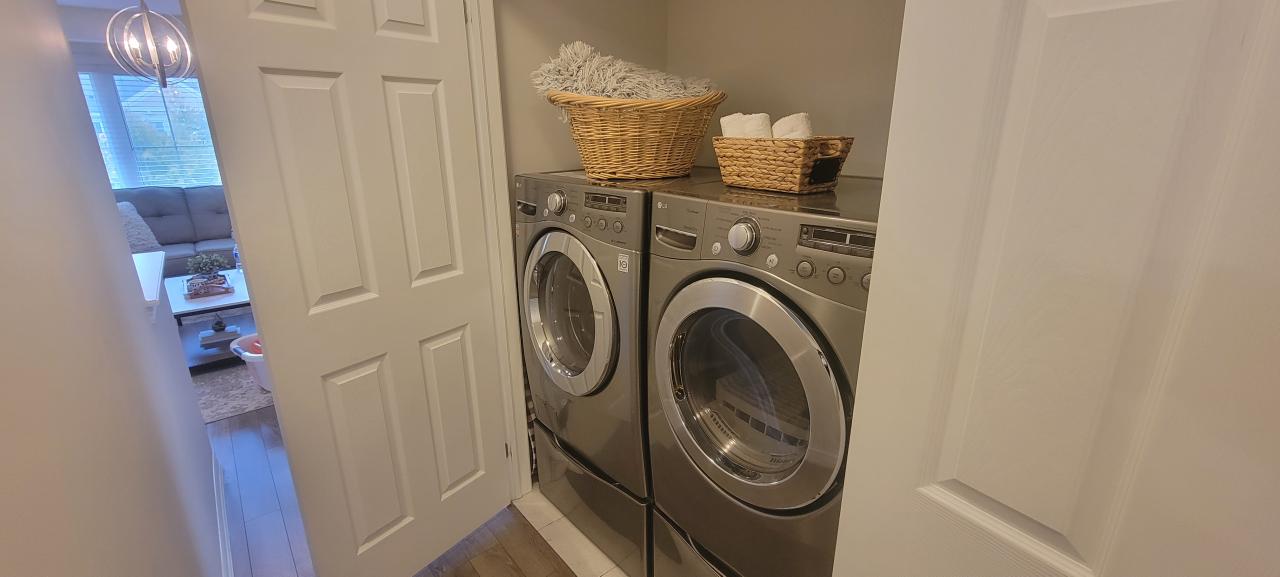
More Than Walls: Building Your Life After the Move
Buying or selling is just the start. Moving is stressful. Settling into a new town takes effort. The first few weeks or months in a new place can feel lonely or overwhelming. This is normal.
Having people you can connect with makes a huge difference. Remember that article about support networks? It wasn’t just fluff. Real connections help you:
- Reduce the stress of moving.
- Get practical tips (like finding a good plumber or the best local pizza).
- Feel less isolated.
- Help your kids adjust if you have them.
- Turn your new house into a real home, faster.
So, how do you actually build those connections in your new GTA West community?
Moving to Milton and Making Friends? Here’s How You Settle In Fast
Milton has grown fast. Lots of families move here. That means many people are open to meeting newcomers.
- Explore Local Hubs: Visit Main Street for shops and cafes. Check out the Milton Centre for the Arts and the Mattamy National Cycling Centre. Community centers like the Milton Sports Centre are busy hubs.
- Family Focus: If you have kids, school events and parent councils are great ways to meet other parents. Look for local parks and splash pads – natural meeting spots.
- Community Events: Milton hosts festivals, farmers’ markets, and events. Check the Town of Milton website’s community calendar. [Link Idea: Town of Milton Events Calendar]
- Find Services: Use the Town of Milton website to find info on waste collection, recreation programs, and local government services.
Settling into Burlington as a Newcomer: Your Action Plan
Burlington offers a mix of city life and nature, right on the lake.
- Hit the Waterfront: Spencer Smith Park and the Brant Street Pier are beautiful spots. Many events happen here.
- Explore Downtown: Brant Street has shops, restaurants, and the Burlington Performing Arts Centre.
- Newcomer Resources: Organizations like the Halton Multicultural Council (HMC Connections) offer programs and support specifically for newcomers in the Halton region (which includes Burlington). [Link Idea: HMC Connections website]
- Join Groups: Burlington has many sports leagues (hockey, soccer), fitness clubs, hobby groups (gardening, book clubs), and volunteer organizations. Check the City of Burlington website or local library for listings.
Finding Your People in Oakville After Your Move
Oakville is known for its beautiful neighbourhoods and strong community feel.
- Community Centres are Key: Places like Glen Abbey Community Centre or Iroquois Ridge Community Centre offer pools, libraries, fitness classes, and programs for all ages. Great places to meet neighbours.
- Volunteer: Giving your time to a local charity, hospital, or community group is a fantastic way to meet people who care about the same things you do.
- School Communities: If you have kids, get involved with the school. Attend events, volunteer if you can.
- Explore Kerr Village or Bronte Village: These areas have unique shops, restaurants, and community events.
- Check Oakville Public Library: Libraries aren’t just for books. They host workshops, talks, and kids’ programs.
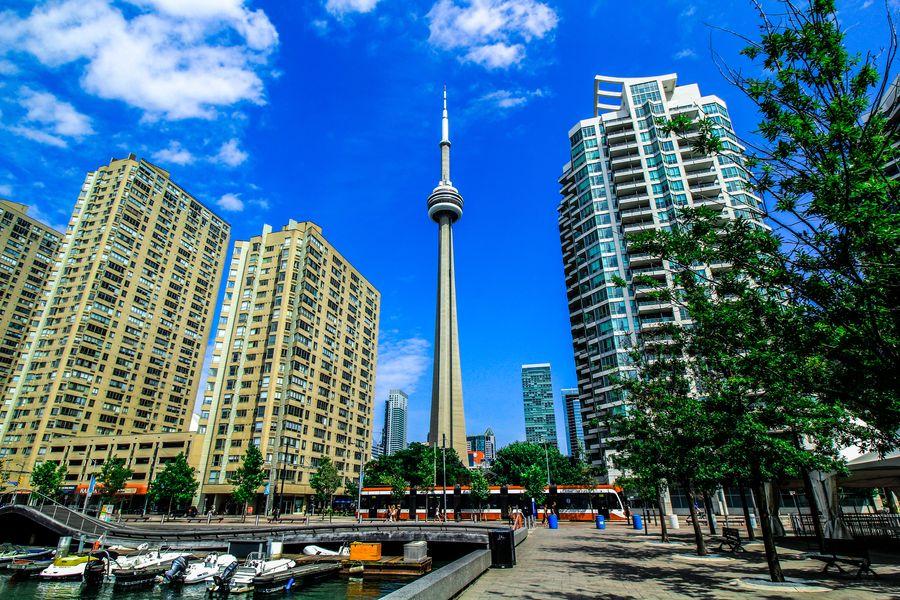
Connecting with Locals in Georgetown & Acton (Halton Hills): Build Your Network
These towns offer a smaller, more tight-knit community feel.
- Embrace Small Town Life: Attend local events like the Georgetown Farmers Market or Acton Leathertown Festival. People are often friendly and approachable.
- Support Local Businesses: Shop on Main Street in Georgetown or Mill Street in Acton. Chat with shop owners and staff. It’s a classic way to connect in smaller towns.
- Join Local Groups: Look for service clubs (like Rotary or Lions), sports teams, or church groups if that interests you.
- Halton Hills Resources: The Town of Halton Hills website has information on local services, parks, and recreation. [Link Idea: Town of Halton Hills website]
- Get Outdoors: Explore nearby conservation areas like Silver Creek or Limehouse. Trails are good places for casual chats.
Thriving in Guelph: Beyond the University
Guelph has a unique energy and lots to offer.
- Explore Downtown & Riverside: The downtown core is vibrant with shops, pubs, and cafes. Enjoy the paths along the Speed and Eramosa Rivers.
- Arts & Culture: Check out the River Run Centre for performances, visit local art galleries, or catch live music.
- Community Events: Guelph has many festivals (Hillside Festival, Multicultural Festival) and community gatherings. Find calendars on the City of Guelph website or local news sites. [Link Idea: City of Guelph Events]
- Local Services: Use the City of Guelph website to find information on everything from waste pickup to recreation programs.
- Neighbourhood Groups: Some Guelph neighbourhoods have active community associations or Facebook groups.
Key Resources and Practical Steps for All GTA West Newcomers
No matter which town you choose, some steps apply everywhere.
Resources for Newcomers in GTA West: Where to Look First
- Municipal Websites: Your town’s official website (Milton, Oakville, Burlington, Halton Hills, Guelph) is your best starting point for local services, events, and contacts.
- Regional Government: Halton Region ([Link Idea: Halton Region website]) covers Milton, Oakville, Burlington, Halton Hills. Wellington County ([Link Idea: Wellington County website]) covers Guelph. They offer public health services, social services, and sometimes newcomer support.
- Newcomer Information Centres: Search online for “Newcomer Information Centre” plus your town or region name. Organizations like HMC Connections (Halton) or Immigrant Services Guelph-Wellington offer settlement help.
- Settlement.org: A provincial website with reliable information for newcomers to Ontario on many topics. [Link Idea: Settlement.org]
- Real Estate Council of Ontario (RECO): For information on buying/selling regulations and agent conduct. [Link Idea: RECO website]
- Local Real Estate Boards: Like the Toronto Regional Real Estate Board (TRREB) or the Oakville, Milton and District Real Estate Board (OMDREB) for market statistics. [Link Idea: TRREB Market Watch]
Community Events and Activities: Get Involved
- Check Town Calendars: Already mentioned, but it’s the best official source.
- Local Libraries: Often have bulletin boards and flyers for local events and groups.
- Local News Outlets: Websites or newspapers for your town often list community events.
- Social Media: Search for Facebook groups related to your town or neighbourhood (e.g., “Milton Moms”, “Guelph Community Board”). Be mindful of group rules and privacy.
- Just Show Up: See a festival? Go check it out. Hear about a neighbourhood BBQ? Introduce yourself.
Finding Local Services After Moving: Doctors, Schools, and More
- Family Doctor: This can be challenging. Register with Ontario’s Health Care Connect service. Ask neighbours or colleagues for recommendations (though many doctors aren’t accepting new patients). Check websites of local hospitals or health clinics for leads. Be persistent.
- Schools: Contact the local school board (e.g., Halton District School Board, Wellington Catholic District School Board) to register your kids. Find your designated school based on your address. [Link Idea: Find Your School Board Ontario]
- Childcare: Finding daycare can take time. Start searching early. Ontario has a licensed childcare finder tool online.
- ServiceOntario: Visit a ServiceOntario centre to update your driver’s license, health card, and vehicle registration with your new address. [Link Idea: ServiceOntario website]
- Utilities & Other Services: Set up electricity, water, internet, etc. Find out about garbage/recycling schedules from your town’s website.
Joining Clubs and Groups in Your New City: Find Your Tribe
- What are your interests? Sports, books, hiking, board games, cooking, dogs, volunteering? There’s likely a group for it.
- Where to look:
- Meetup.com
- Community centre program guides
- Library bulletin boards
- Local sports facility websites
- Ask people you meet!
- Try something new: A new town is a great chance to try a new hobby.
Feeling at Home After Relocation: It Takes Time, Here’s Help
- Be Patient: Feeling settled takes time. Don’t expect it to happen overnight. It’s okay to feel homesick or unsure at first.
- Establish Routines: Simple things like finding your favourite coffee shop or walking route can make a place feel familiar.
- Explore: Make a point to explore different parts of your town and surrounding areas each week.
- Say Yes: If someone invites you for coffee or to an event, say yes if you can. Push yourself gently out of your comfort zone.
- Stay Connected (Old Ties): Keep in touch with old friends and family. But also make an effort to build new local connections.
Newcomers Support Programs GTA: What Help Can You Get?
- Settlement Services: Offered by agencies funded by the government. They help with finding housing, jobs, schools, healthcare, understanding Canadian life. Search online for agencies in your area.
- Language Classes: If English or French isn’t your first language, look for LINC (Language Instruction for Newcomers to Canada) classes. Often free.
- Employment Help: Many agencies offer workshops on resume writing, job searching, and networking in the Canadian job market.
- Bridging Programs: For internationally trained professionals to get licensed or find work in their field in Ontario.
Integrating into a New Community: Practical Steps
- Be Open and Friendly: Smile, make eye contact, say hello to neighbours.
- Ask Questions: People usually like to share information about their town.
- Get Involved Locally: Join the library, volunteer, attend school meetings, shop local.
- Learn Local Norms: Pay attention to things like recycling rules, parking bylaws, community etiquette.
- Share Your Background: People are often interested to learn about where you came from too.
Why a Support System Matters (More Than You Think)
Seriously, don’t underestimate this. Knowing even a few friendly faces makes a huge difference when you move.
- Less Stress: Asking a neighbour where the best grocery store is beats driving around lost for an hour.
- Kid Comfort: Seeing you chat with other parents helps your kids feel more secure and make friends faster.
- Practical Help: Need a recommendation for a reliable electrician? A local contact is invaluable.
- Feeling Good: Sharing a quick chat with someone while walking the dog, or having someone invite you over, combats loneliness and makes your new house truly feel like home.
- Career Boost: Sometimes local connections lead to job leads or business opportunities you wouldn’t find otherwise.
Building this network takes effort. Like the original article said, be intentional. Engage in your community. Foster genuine relationships. Offer help when you can. It pays off.
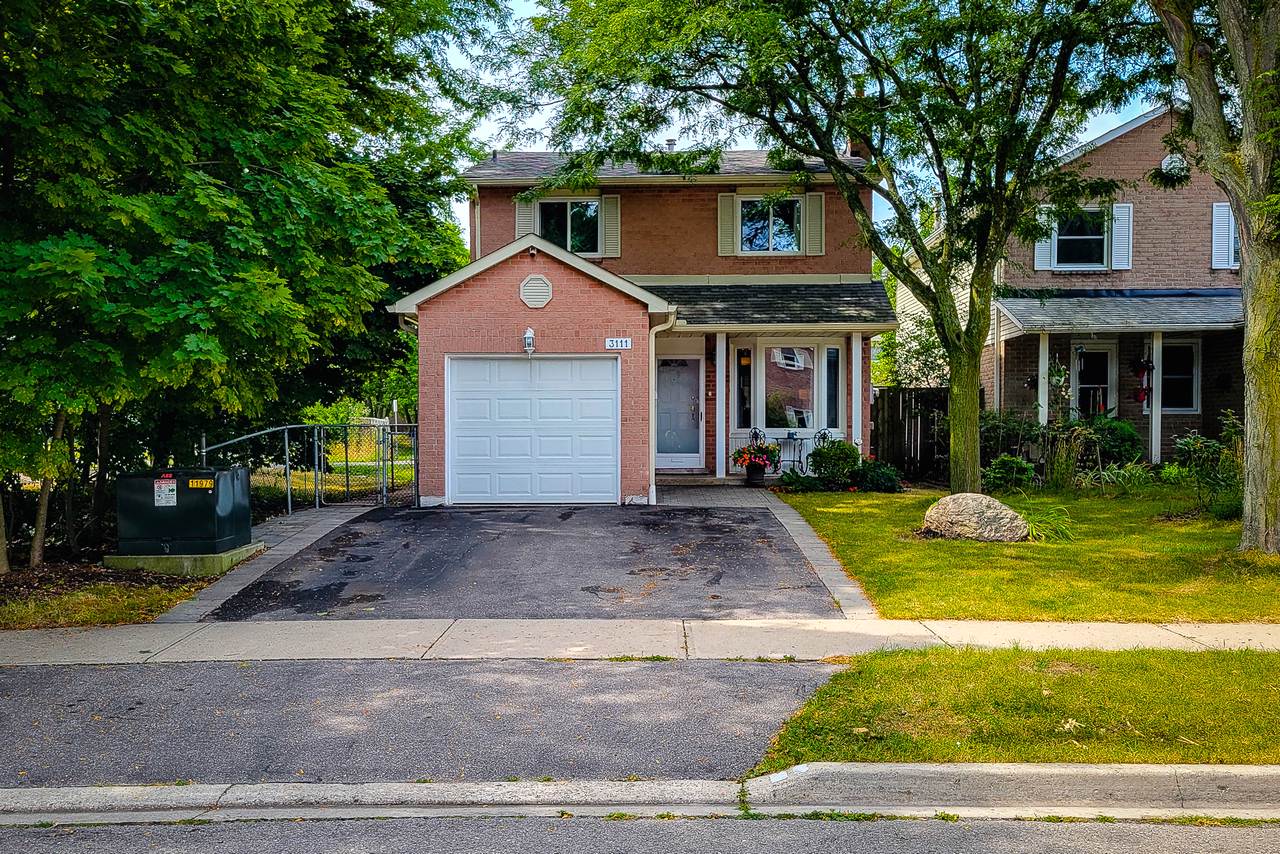
FAQ: Your GTA Real Estate & Settling-In Questions Answered
Q1: What are the typical closing costs when buying in Ontario?
- Budget roughly 1.5% to 4% of the purchase price. This covers Land Transfer Tax (Provincial, plus Municipal in Toronto), legal fees, title insurance, and other smaller costs. First-time buyers may get a rebate on Land Transfer Tax. Ask your lawyer for a specific estimate for your situation.
Q2: How do property taxes compare between Oakville and Guelph?
- Property tax rates vary by municipality and change yearly. Generally, Oakville tends to have higher property values, which can mean higher tax bills even if the rate is similar or lower than Guelph‘s. Guelph might have a higher tax rate but lower average property values. You need to check the current rates on the respective city websites and look at the specific assessment value of the property you’re interested in.
Q3: Are there specific programs for first-time home buyers in Ontario for 2024/2025?
- Yes, key ones include the provincial Land Transfer Tax Rebate for first-time buyers (up to $4,000). Federally, there’s the First Home Savings Account (FHSA) for saving tax-free, and potentially the RRSP Home Buyers’ Plan (HBP) allowing you to borrow from your RRSPs. Check official government websites (Canada Revenue Agency and Ontario Ministry of Finance) for the latest details and eligibility rules as programs can change.
Q4: How do I find a family doctor accepting new patients in Milton or Burlington?
- It’s tough across Ontario. Start by registering with Health Care Connect Ontario online or by phone. Ask neighbours, friends, or colleagues for leads. Check the websites of local hospitals (e.g., Milton District Hospital, Joseph Brant Hospital in Burlington) as they sometimes list associated clinics. Be prepared to wait and call multiple clinics.
Q5: What’s the best way to find out about local community events in Georgetown?
- Check the Town of Halton Hills website’s event calendar. Look at the Downtown Georgetown BIA website. Follow local Georgetown Facebook groups or pages. Check bulletin boards at the library or community centre. Read local news sources like the Independent Free Press.
Q6: I’m selling my house fast in Acton, what’s the most important preparation step?
- Decluttering and cleaning are crucial first steps for any sale. Make the house look spacious, clean, and well-maintained. After that, focus on curb appeal (tidy lawn, welcoming entrance) because first impressions happen before buyers even step inside. Ensure any obvious small repairs are done.
Buying, selling, moving – it’s a big deal with lots of moving parts. You need a clear plan. You need good information. And sometimes, you need a little help navigating it all.
If you want straightforward advice tailored to your situation in Georgetown, Milton, Guelph, Acton, Oakville, or Burlington, let’s talk. We understand both the market numbers and what it takes to build a real life here. Reach out when you’re ready.

